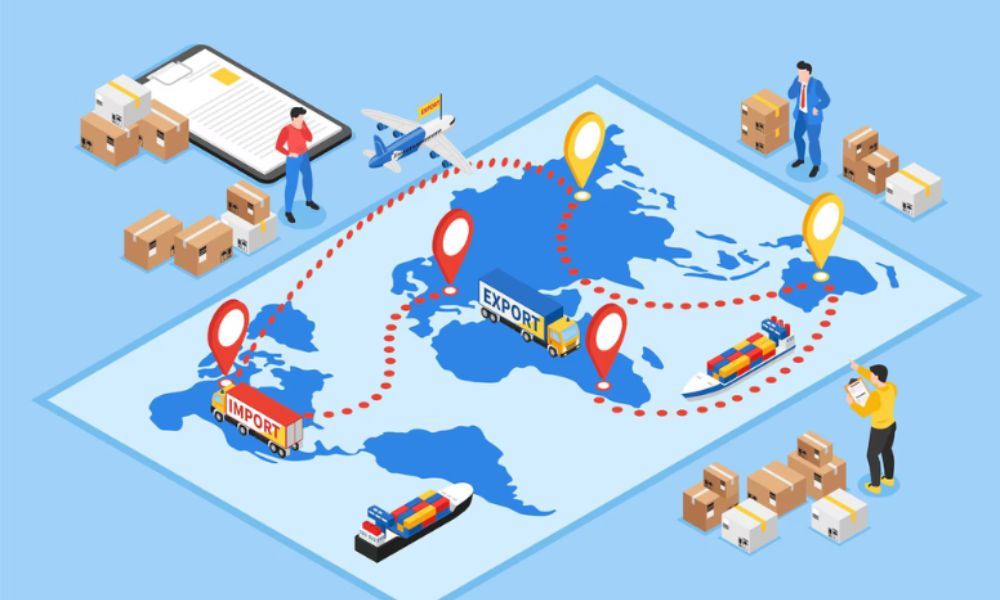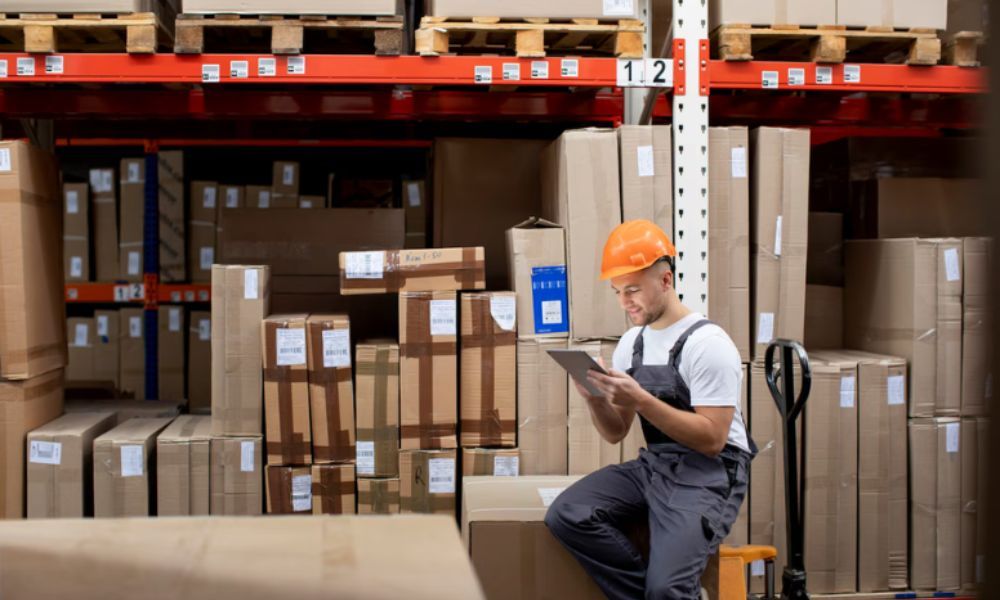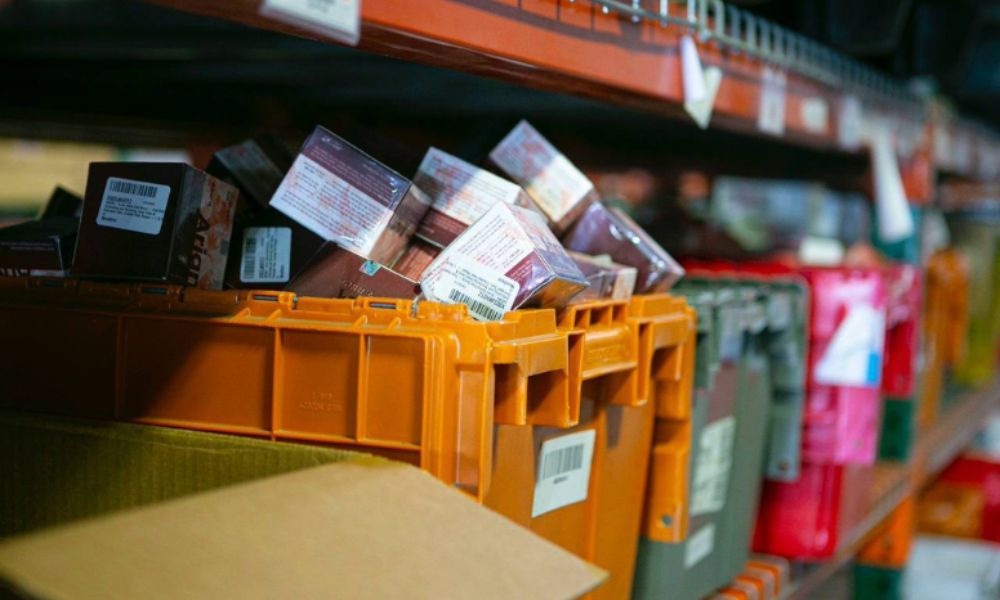
More Helpful Content
In the era of global eCommerce, cross-border fulfillment plays a critical role in helping businesses overcome geographical boundaries and reach and serve customers in new markets. Through the process of cross-border shipping and order completion, online companies can expand their reach on an international scale.
In addition, it allows them to ship goods from a warehouse in one country to customers in another, meeting the increasing global demand of consumers.
However, cross-border fulfillment also presents many challenges for businesses. They have to comply with customs, tax, and import regulations in each target market, while also effectively managing international logistics and courier services to ensure fast and reliable deliveries. Handling cross-border returns and exchanges is also an important task to provide a good shopping experience for customers.
Despite the additional effort required, cross-border fulfillment still offers a tremendous opportunity for online businesses. It helps them access and serve customers in new markets, expanding the scale and scope of their cross-border operations. This is a trend that cannot be overlooked in the context of the rapidly growing global eCommerce landscape.

Cross-border fulfillment is an important part of the cross-border selling strategy for eCommerce businesses. It includes the transportation, storage, and delivery of products from one country to another to meet the shopping needs of customers worldwide.
Cross-border fulfillment has particularly seen strong development in recent years as it has opened up business opportunities for companies as well as international shopping opportunities for customers.
>> Learn more:
The detailed process of cross-border fulfillment guide:
Importing goods:
Logistics and warehouse partner selection:
Store and manage inventory:
Processing orders and delivering goods:
Customer service and returns processing:
The cross-border fulfillment process requires close coordination between inventory management, order processing, and customer support. Therefore, businesses need significant preparation and investment to implement it effectively.

Cross-border fulfillment is always prioritized by businesses for development because it brings many benefits if utilized properly. These benefits are effective solutions that help businesses expand their operations and enhance their competitive capabilities in the global market. Specific advantages can be mentioned as follows:
On the contrary to the advantages, cross-border fulfillment also comes with certain difficulties that can cause a lot of trouble for businesses. Below are the common challenges:

To overcome these challenges, businesses need to invest in building global logistics capabilities, collaborate with local partners, and apply modern technology to manage the entire cross-border supply chain.
Cross-border fulfillment and localized fulfillment are the two most common types of goods transportation today. However, each type will have different strengths and weaknesses suitable for different purposes.
This makes businesses quite hesitant in choosing the best type of fulfillment for their business. Below is a more specific comparison table of the differences between these two types.
| Characteristics | Cross-Border Fulfillment | Localized Fulfillment |
| Scope of operation | Expand the scope to international markets, access the global market. | Limited to the domestic market, restricting opportunities for expansion and development. |
| Supply-chain and logistics | The request for a more complex supply chain includes imports, warehousing, cross-border transportation, and other regulations. | Just managing the domestic supply chain is simpler and easier to control. |
| Shipping speed | It takes more time to transport because it has to go through many stages and customs procedures. | Faster due to closer geographical distance. |
| Expense | Higher due to longer geographical distance, including related costs such as taxes, customs fees, and transit fees. | Lower cost due to smaller operating scope. |
| Infrastructure | Just need a central warehouse to receive orders. | Easily connect and make good use of existing infrastructure within the country that will require multiple distribution centers. |
| Legal documents | More complex in preparing related legal documents. | Just need to comply with and prepare documents of one operating country. No customs procedures are required for domestic transportation. |
| Adaptation to regional markets | Requires a strategy to approach and understand the needs of multiple regional markets and countries. | Easy access and deep understanding of the needs and behaviors of the market in a country. |
| Risks and security | Facing more risks such as damage/loss of goods, legal disputes, and customer information security. | Less risk due to not transporting long distances. |
| Customer experience | Long delivery time reduces customer satisfaction. | Fast domestic delivery makes customers more satisfied. |
In summary, cross-border fulfillment offers opportunities to expand global markets but requires higher supply chain management and financial capabilities, while localized fulfillment has simpler processes but limited business scope. Both have their benefits and limitations. Therefore, businesses need to consider choosing the option that is suitable for their strategy, resources, and management capabilities.

Cross-border fulfillment will help your business expand globally and generate huge profits. These tasks imply that your business must face a series of documents and complex procedures to clear goods through the border. To effectively solve these arising issues, you should choose to collaborate with a reputable logistics unit to accompany you.
EFEX - The best cross-border fulfillment services will help you do that. Our cross-border fulfillment solution is a service that we confidently possess years of experience with impressive daily shipment numbers. With EFEX, you won't have to worry about any issues related to packaging, customs clearance, or delivering the goods to customers, because we have the most professional process to do that.
EFEX service will help you increase the success rate of delivery up to 98% from domestic to international. In addition, you will have the option to choose the appropriate shipping carrier based on the fees and delivery time you want. EFEX service also provides professional customs clearance support by understanding the customs policies of each country. Thanks to easy customs clearance, international shipping time becomes fast, only 5-8 days. We have delivered to 220+ countries worldwide and insured 100% of the value of goods throughout the transportation process.
Finally, EFEX also has an international transportation network in many countries such as the United States, China, Thailand, Singapore, etc. EFEX is ready to become a bridge, delivering your goods from Vietnam to all over the world in a short time. Let's contact us for free consultation and special offers!


